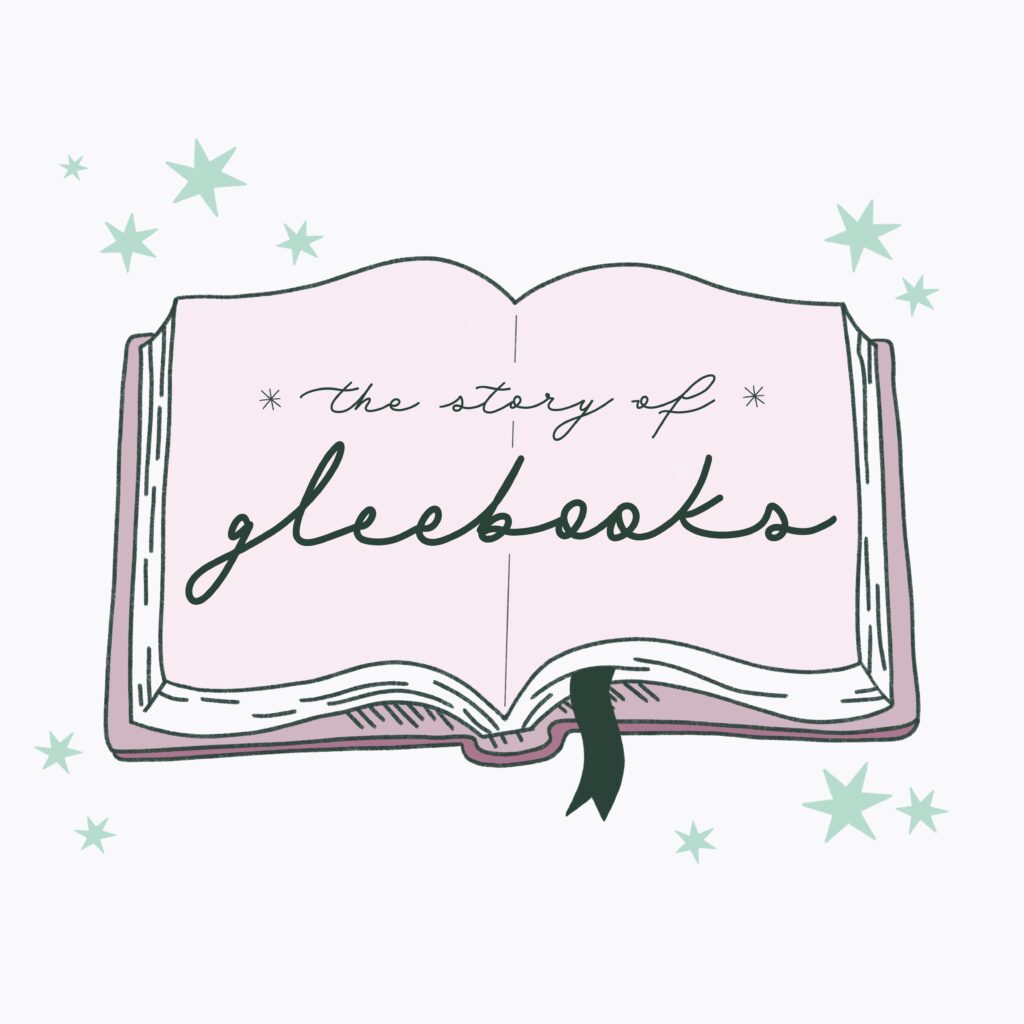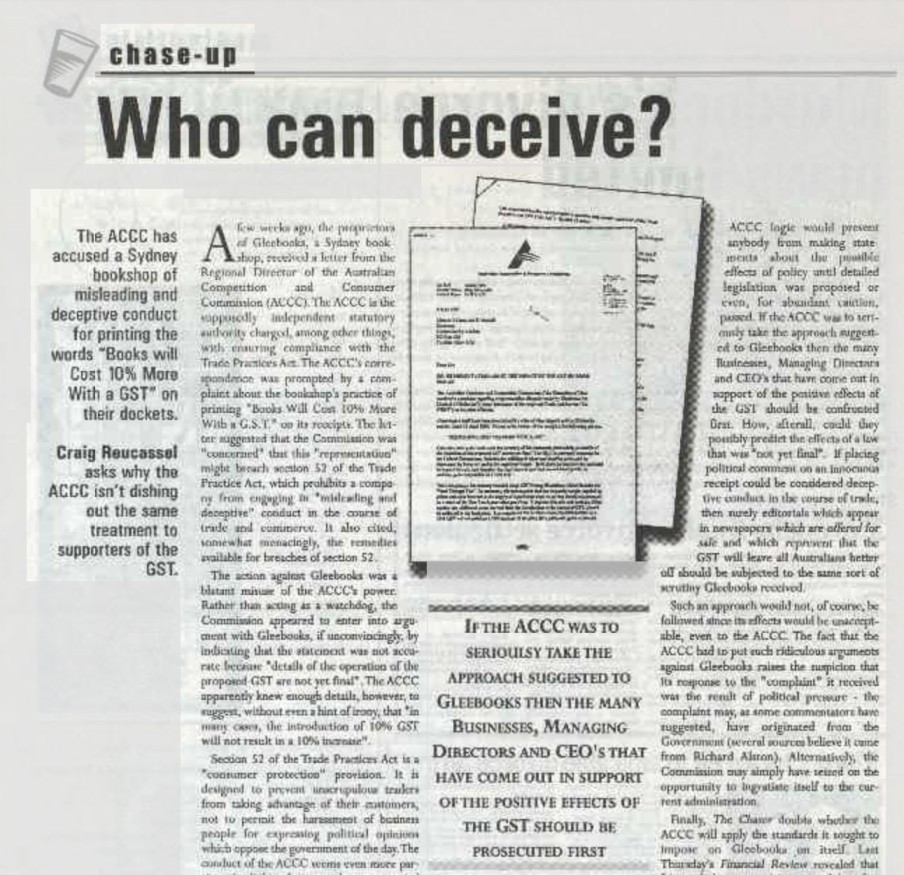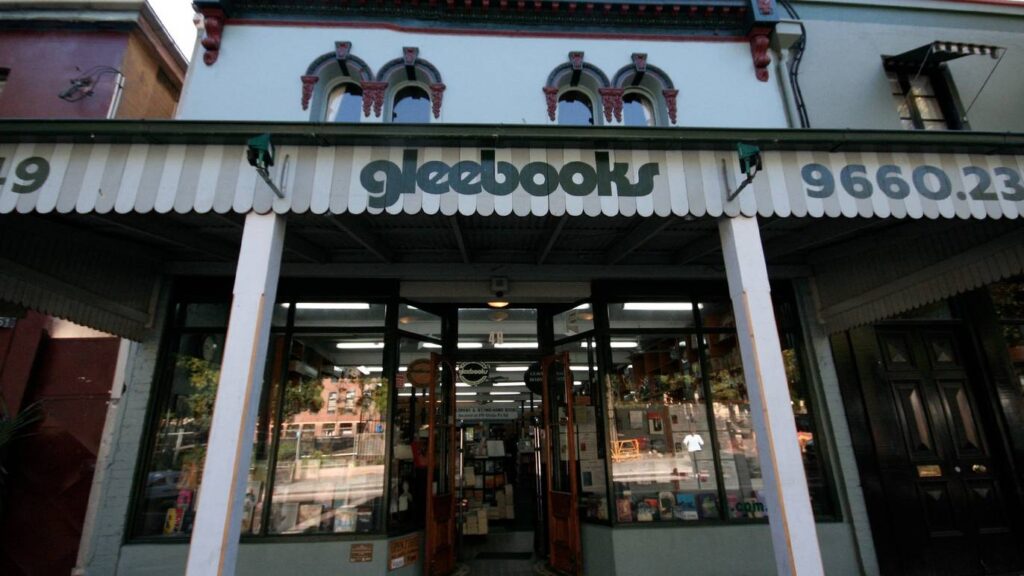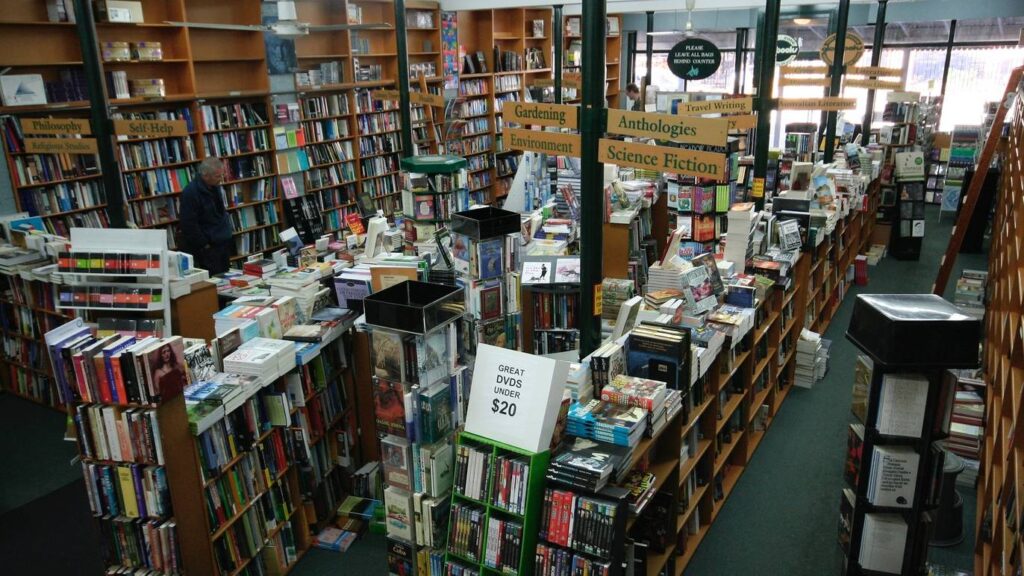This semester, I worked with Gleebooks to tell their history of over forty-five years of book trade and community engagement. To do this, I created a podcast episode titled “The Story of Gleebooks,” as well as an accompanying website.

I realised early on in my research process that Gleebooks has a long and fairly extraordinary history. However, this is not widely publicised and there is limited information easily viewable online. I also came to appreciate the depth of loyalty held towards the store by many of their customers. Yet, these same customers are often unaware about the details of the business’s history and its involvement with larger causes. The importance of uncovering marginalised or unknown histories in order to democratise the idea of history itself is something I have become acutely aware of this semester. Accordingly, I wanted to uncover Gleebooks’ history for its own community.
I chose to create a podcast because this is an accessible format for anyone with a computer or phone and internet access, meaning most members of Gleebooks’ community would be able to listen. The process for creating this episode involved going through online archives, interviewing relevant individuals, and gaining an understanding of the Australian book industry. I then wrote up a script based on my research, recorded myself speaking, edited this into one podcast episode, and inserted clippings from the interviews I conducted.
To create my script, I drew evidence from two main types of primary sources: oral histories and newspaper articles. I conducted oral histories on three people who have been involved with Gleebooks in different ways. The first was David Gaunt, co-owner of the business since 1978. Then I interviewed Dr. Zora Simic, an enthusiastic and loyal customer, and Dr. Ann Curthoys, also a long-time loyal customer, Glebe resident, and author who has launched books at Gleebooks. Each interviewee shared with me their personal stories and through these, I gained new insight into how Gleebooks’ has operated over the years, beyond what written sources could convey. Conducting these interviews and hearing about my interviewee’s experiences, I was reminded about the centrality of storytelling within history, and the fact that all stories are worth sharing.
While the idea of a history podcast is far from original, I have not seen many podcasts about local history or individual small businesses. Rather, most tend to focus on either national or global histories. Furthermore, the idea of storytelling in an oral format is obviously not original and something that has occurred across different cultures for hundreds of thousands of years, as we were reminded in the Week 2 reading The Way To Rainy Mountain, a Native American story which has been passed down throughout generations.
In terms of the accompanying website, I want this to be like a database or hub for information on Gleebooks’ history; somewhere that the general public can easily find historical sources about the business. I want it to be a collaborative space, and I am encouraging viewers to get in touch if they have suggestions. I have included a page titled “Gleebooks Media Articles” which includes a chronological list of articles relating to Gleebooks.

The underlying question throughout the podcast relates to how Gleebooks has survived for over forty-five years. Those forty-five years have involved numerous external challenges such as restrictive trading laws, increased taxes on books, and the introduction of Amazon and its monopoly over the Australian book market. My answer to this question, outlined below, was informed by both background research as well as my interviews with David, Dr. Simic, and Dr. Curthoys, as I asked them all this same question.
- Their location in Glebe, amongst a community who valued their products, ethos, and messages.
- Their wide-ranging selection of books on a range of intellectual and political topics, which appealed to the local university populations.
- Their community focus – especially their literary events and ideas programmes, which bring people together to share and discuss contemporary topics and ideas.
- Their strong brand identity, which is associated with trust, knowledge, and expertise. They are also known for their involvement with the Sydney Writer’s Festival. These factors have contributed to their expansion across Sydney.
- Their ability to continually adjust to the challenges facing them, whether that’s the threat of Amazon or the COVID lockdown.
My overall conclusion is that Gleebooks has survived for so long because of the loyalty of its customers and due to their desire for the business to maintain its success. This loyalty is a direct outcome of Gleebooks’ thorough understanding of their customer base as well as their continuous community engagement.


